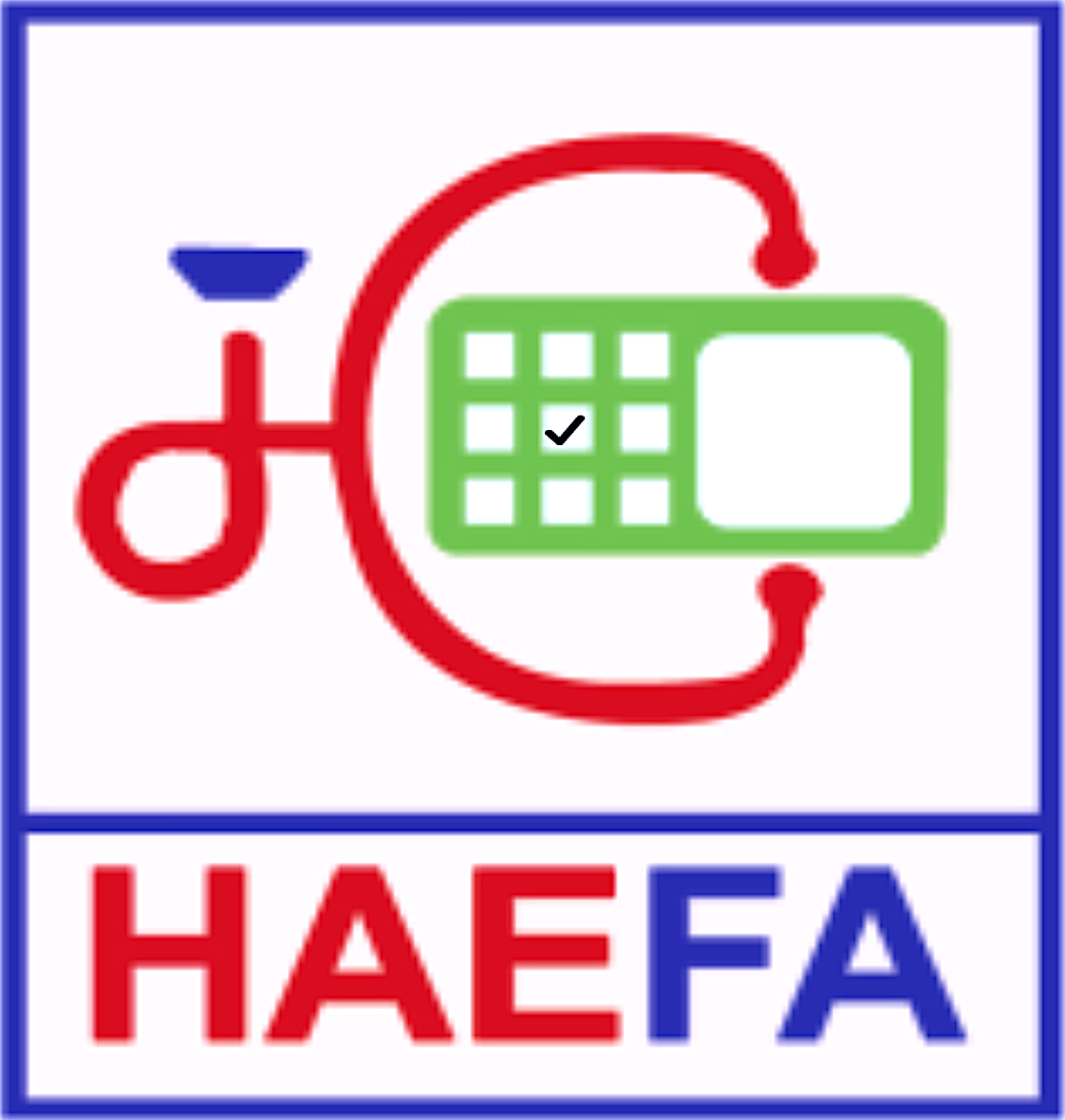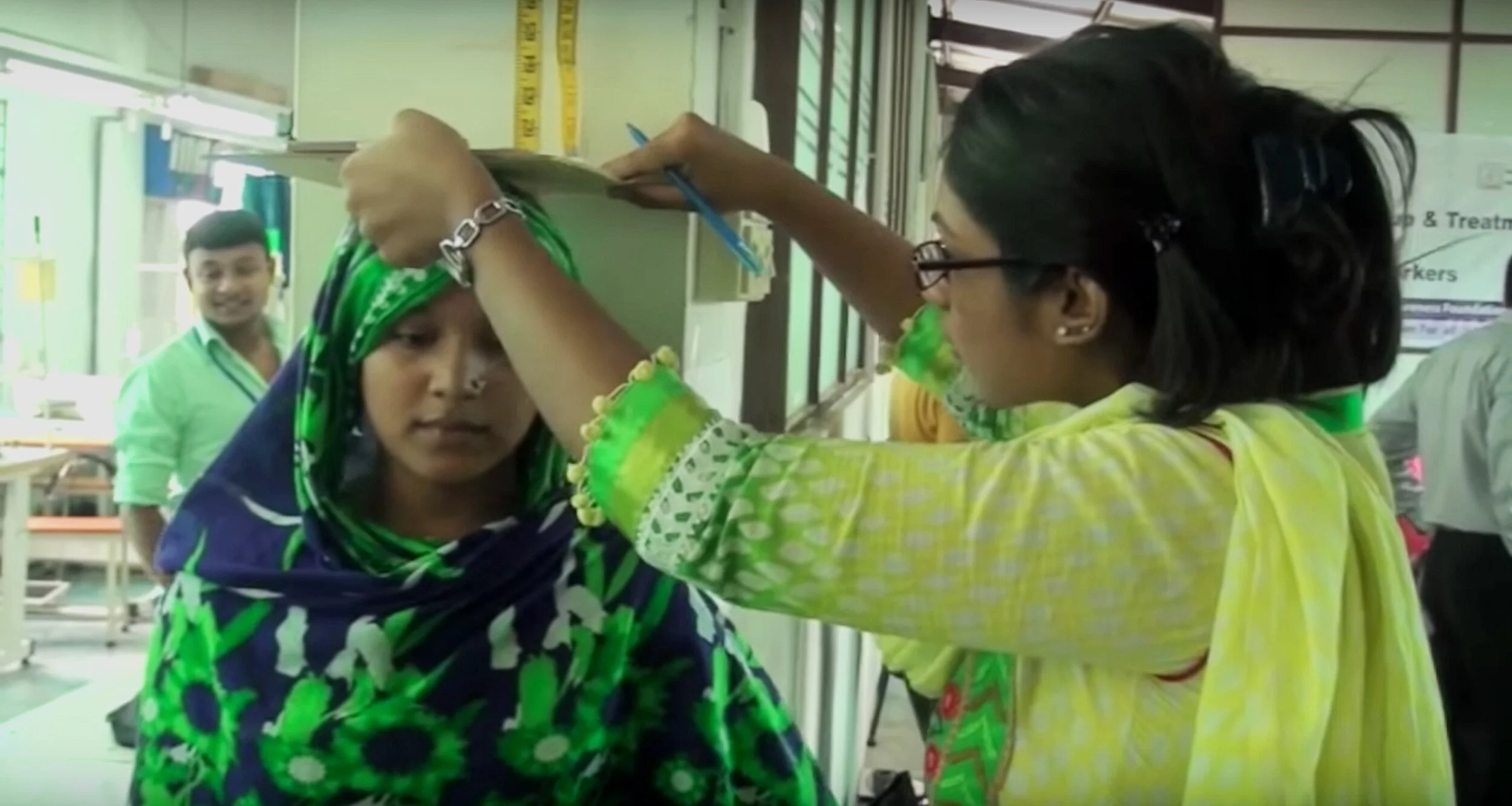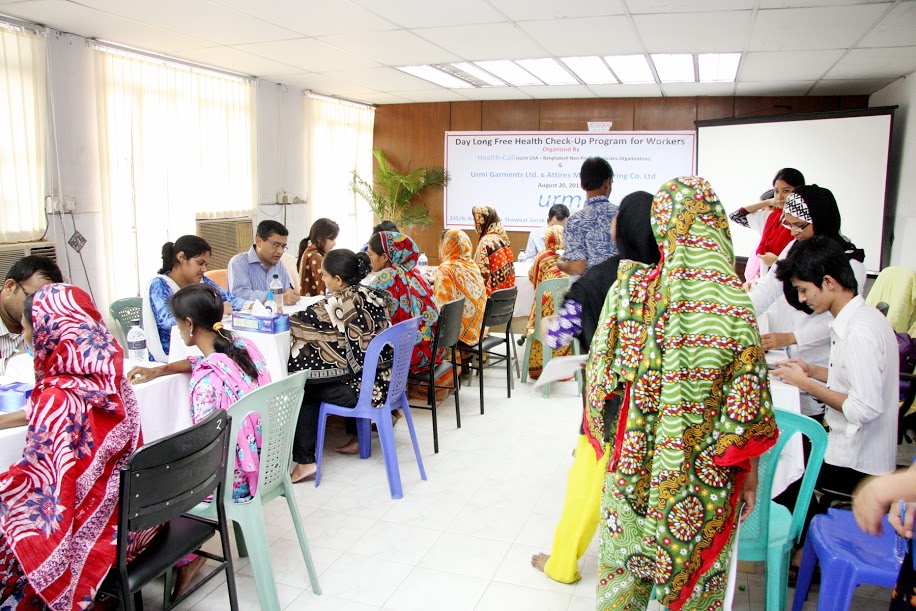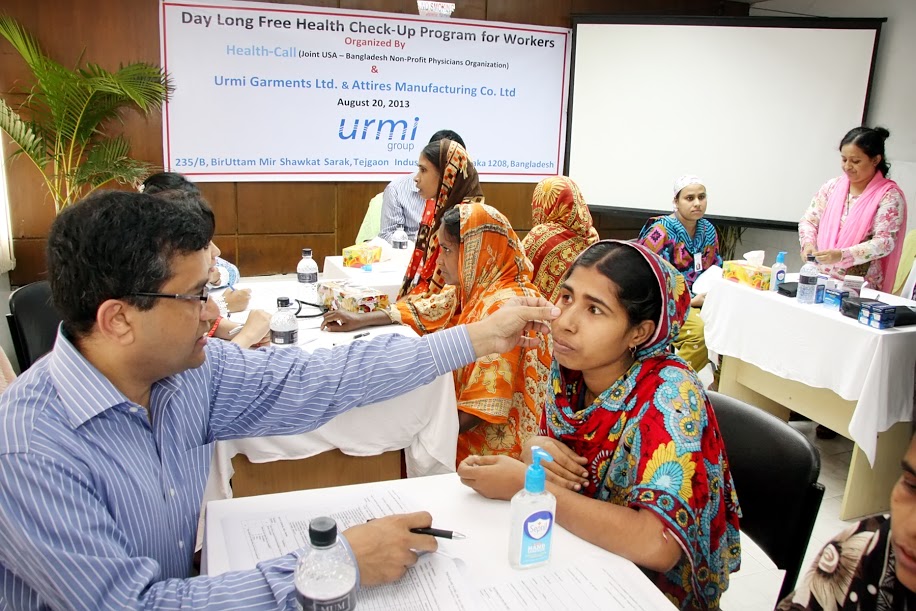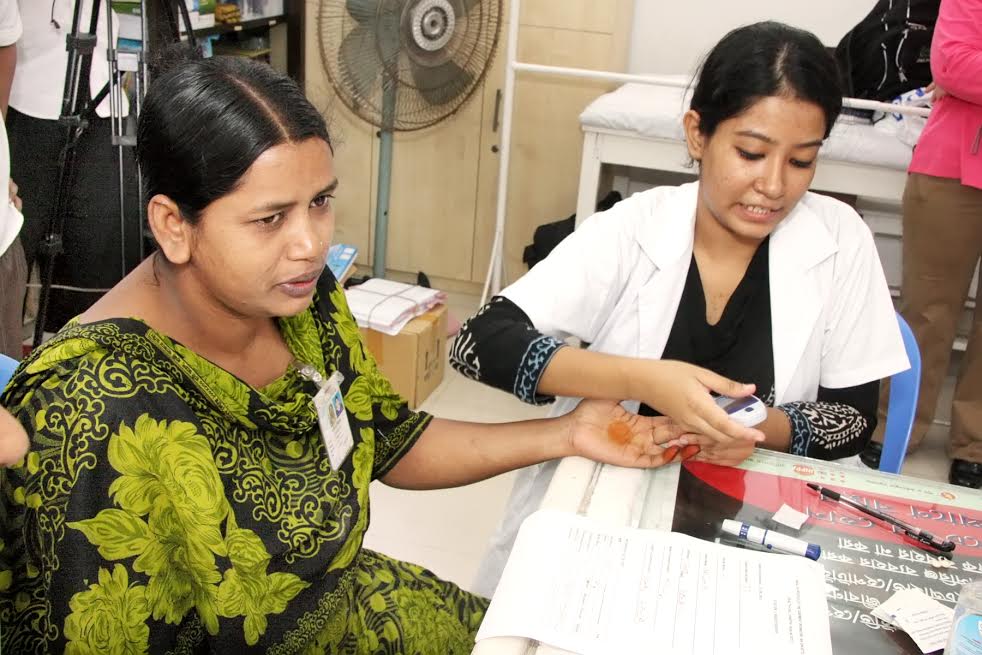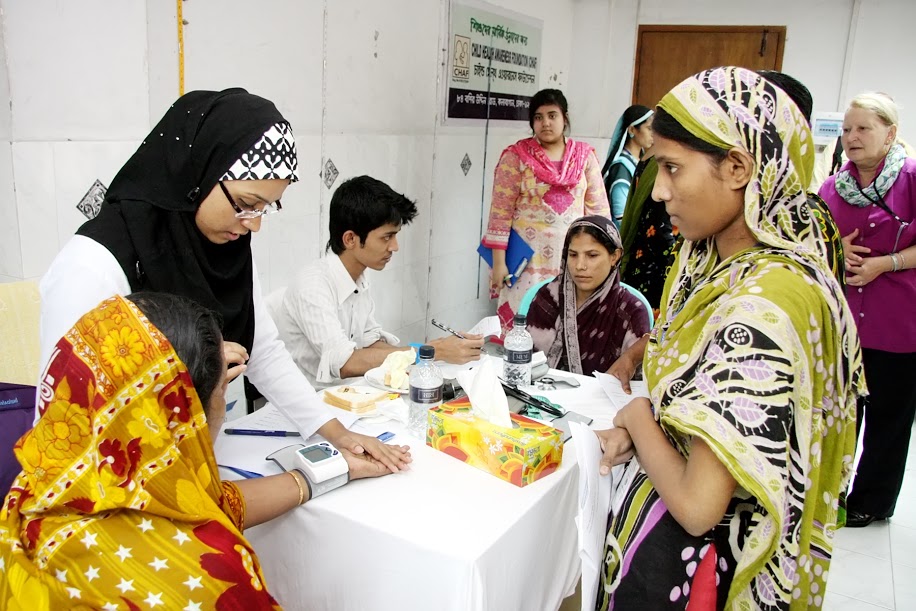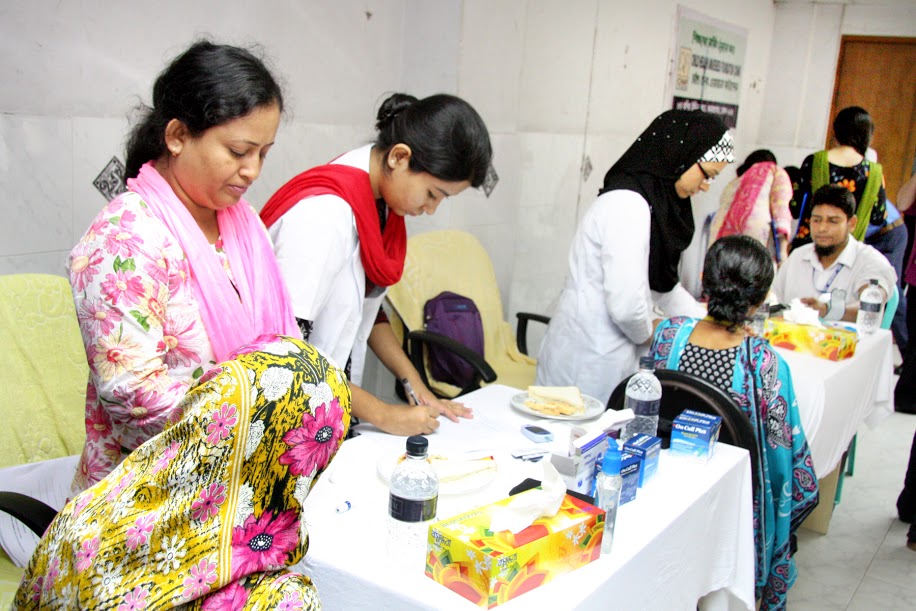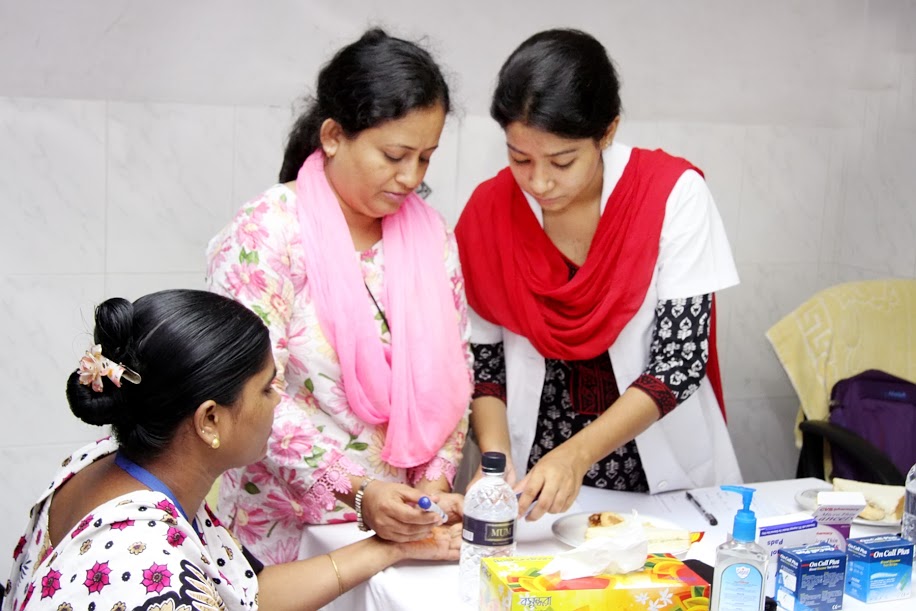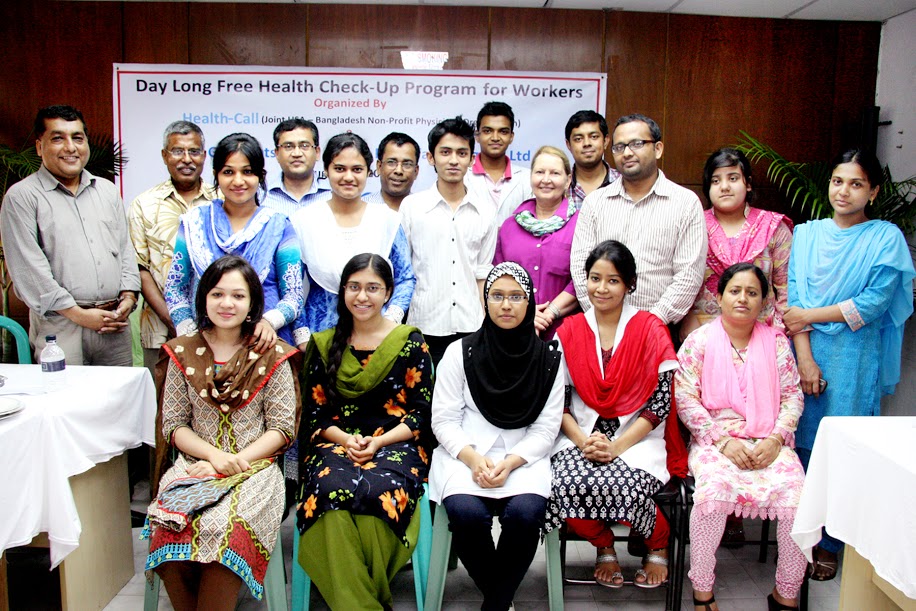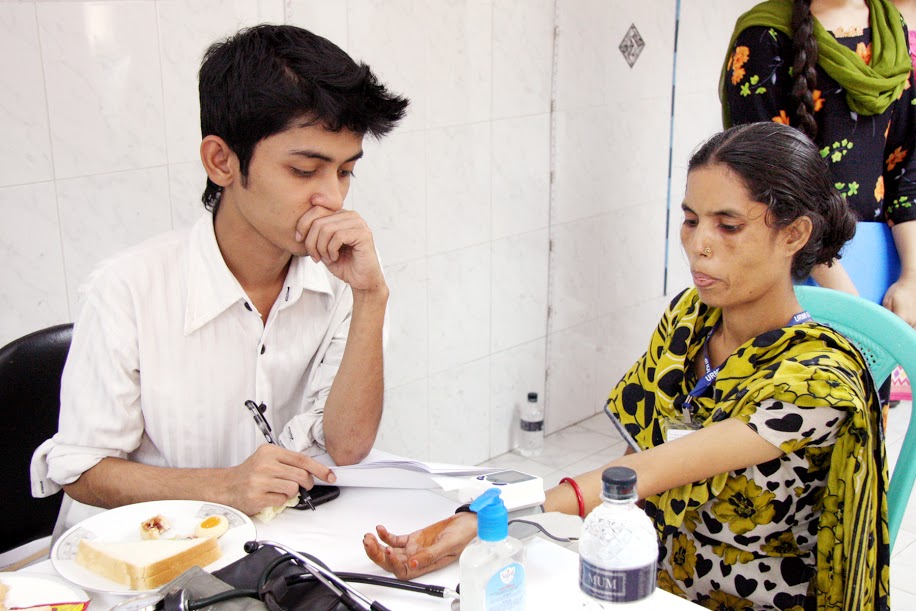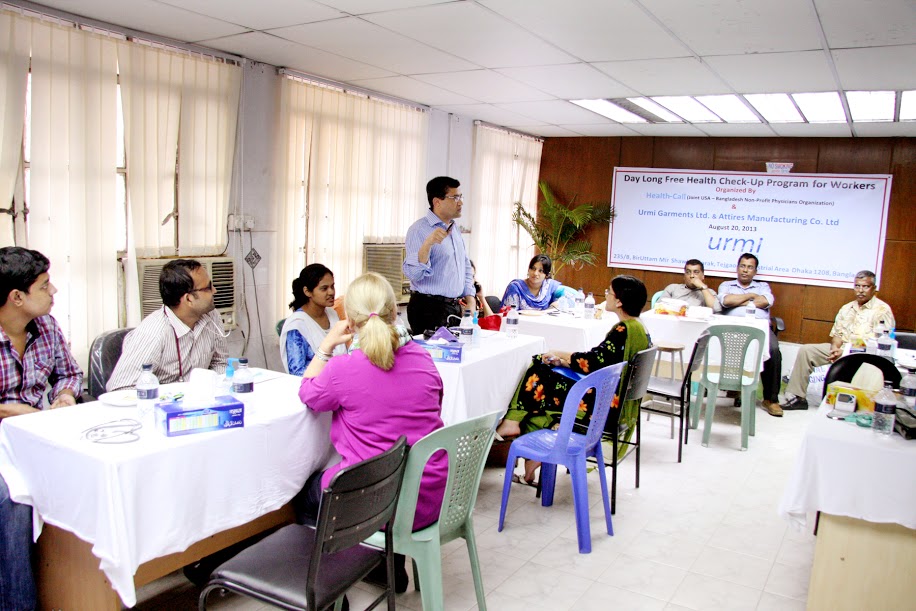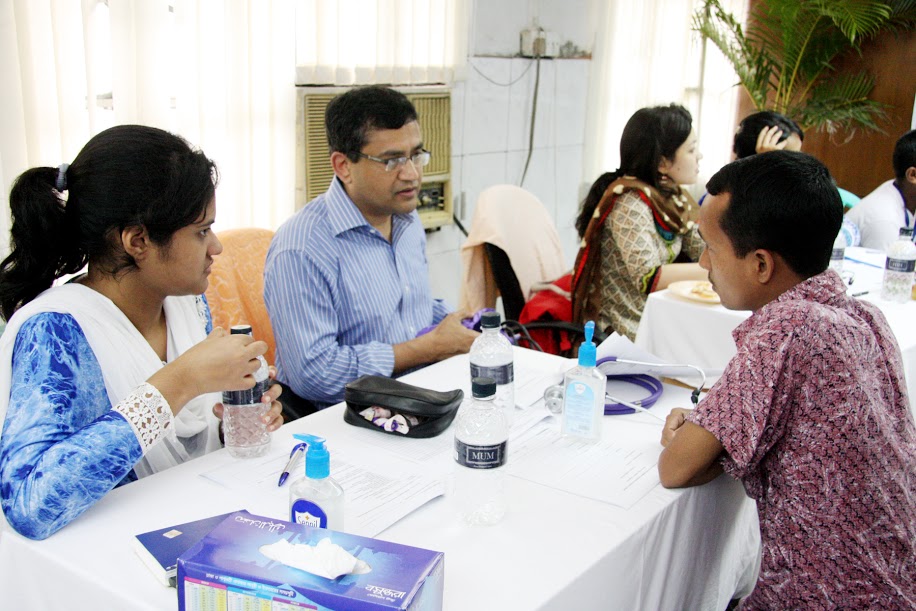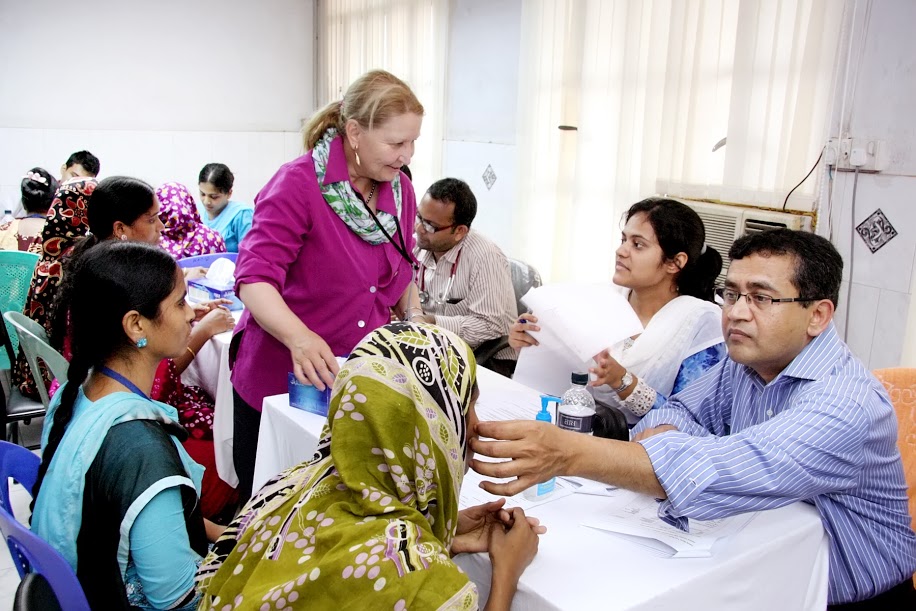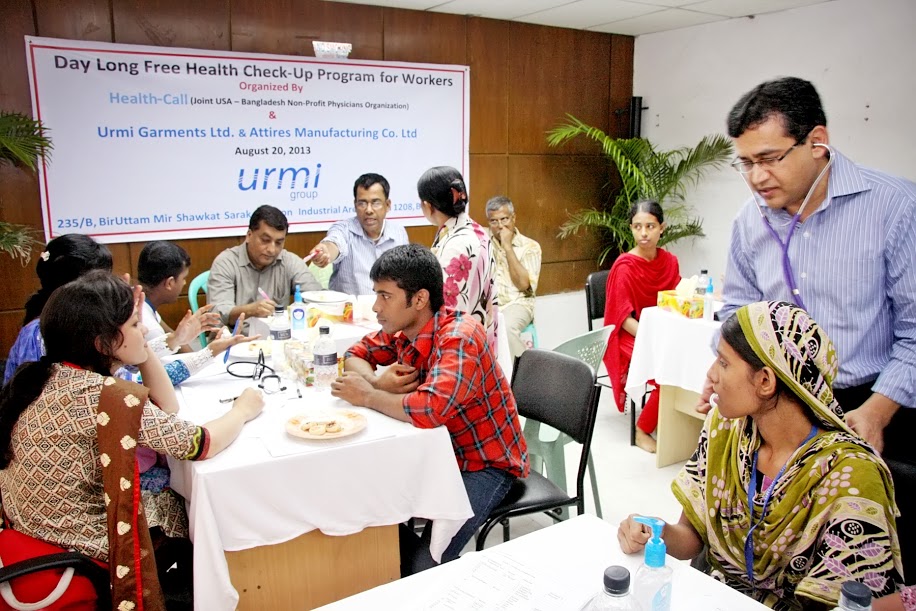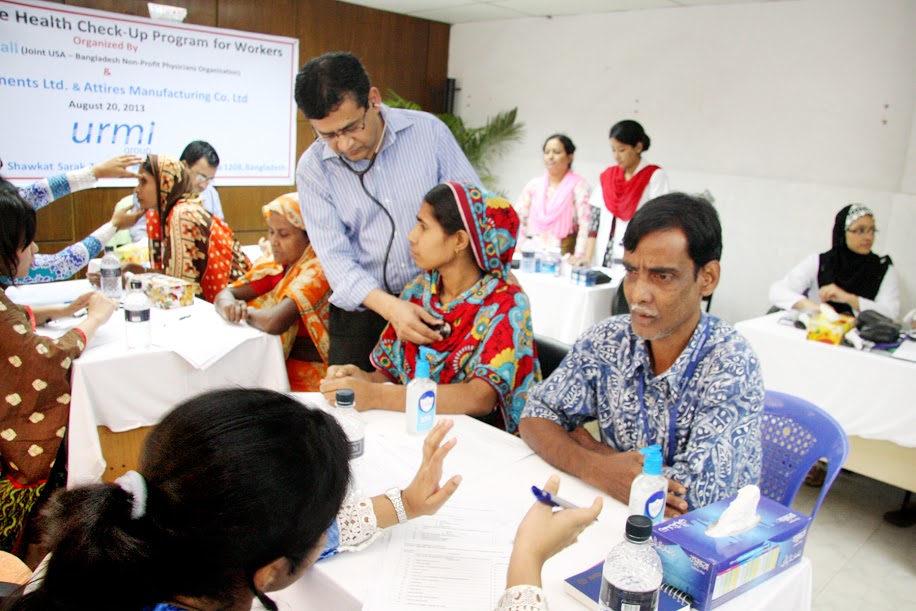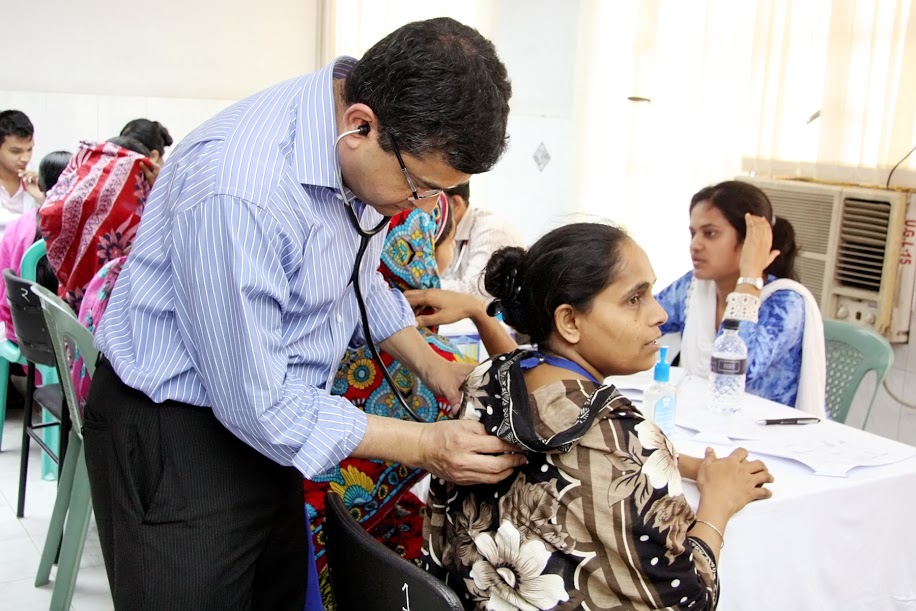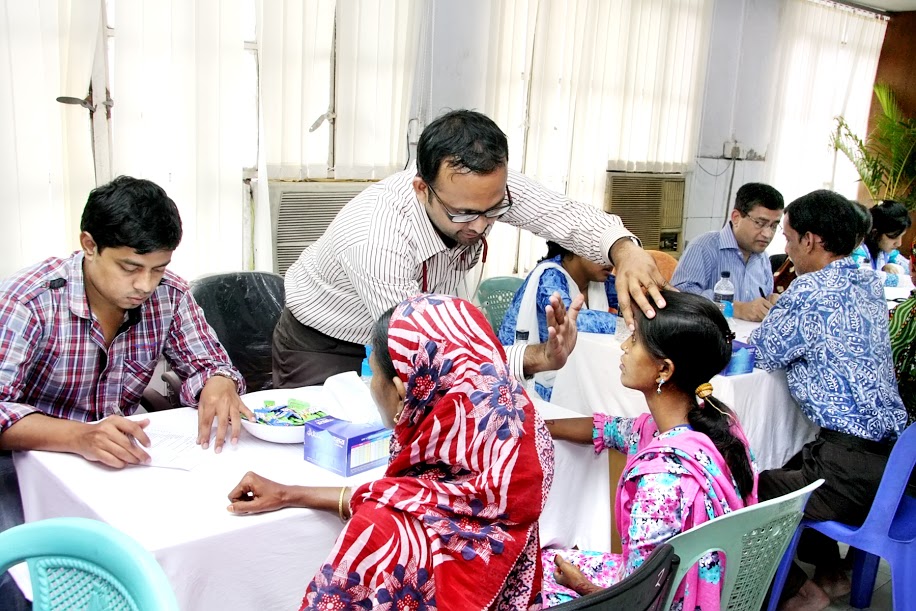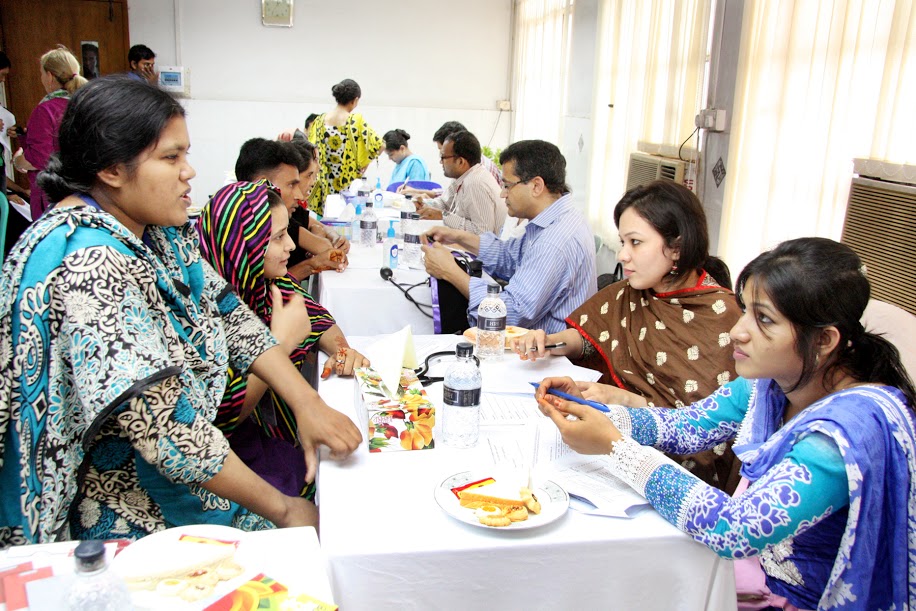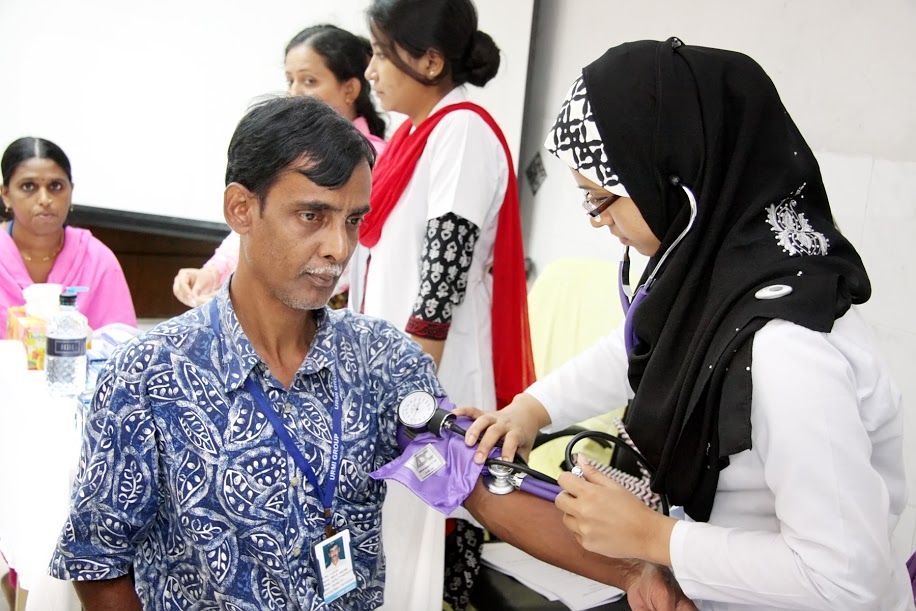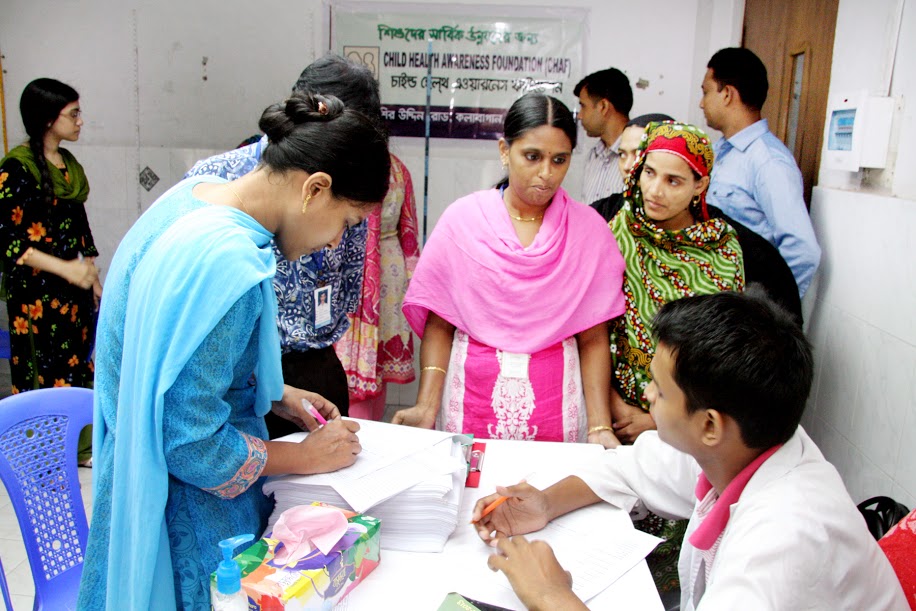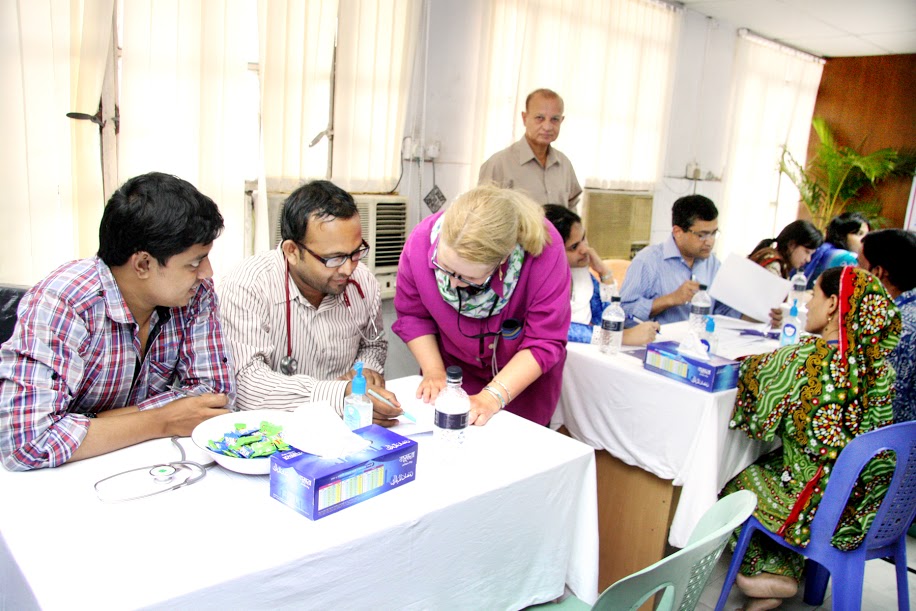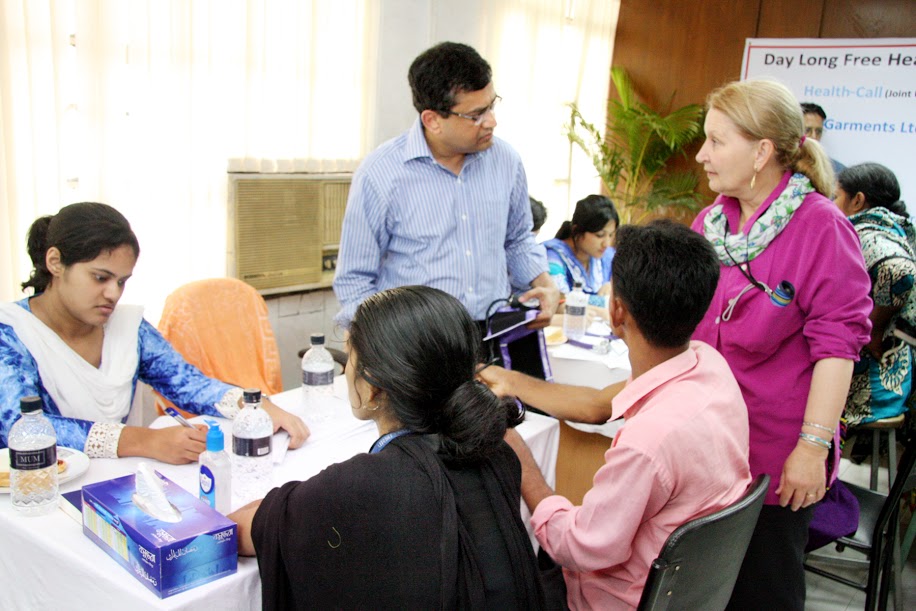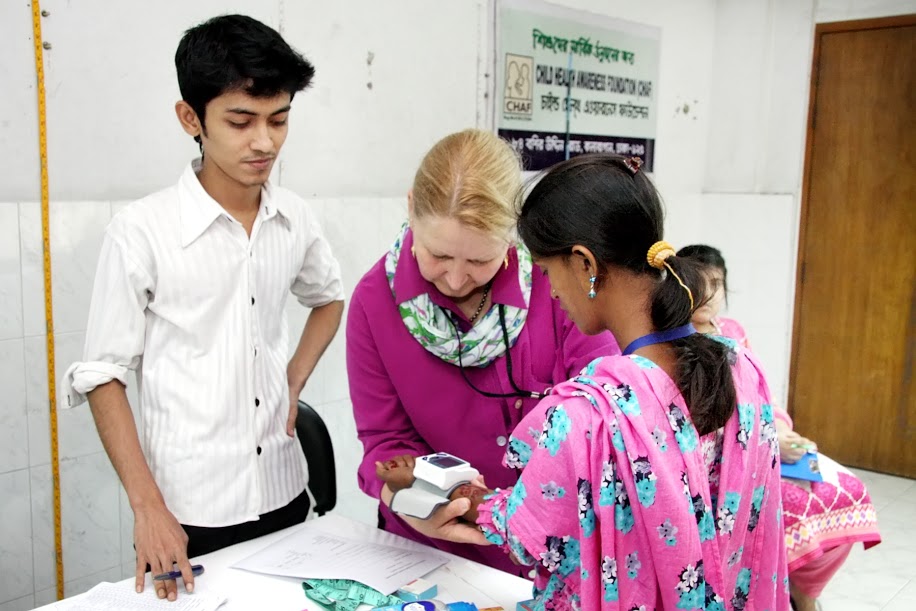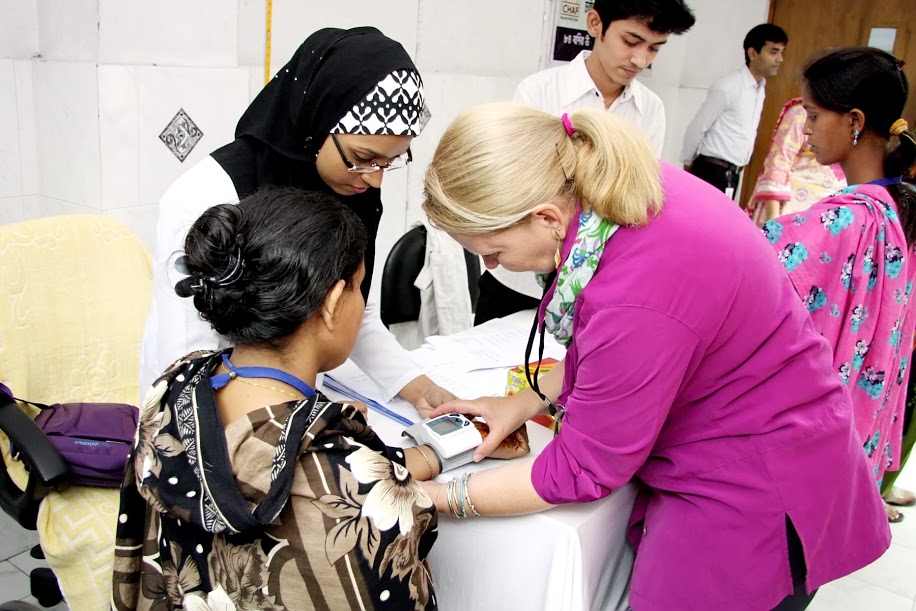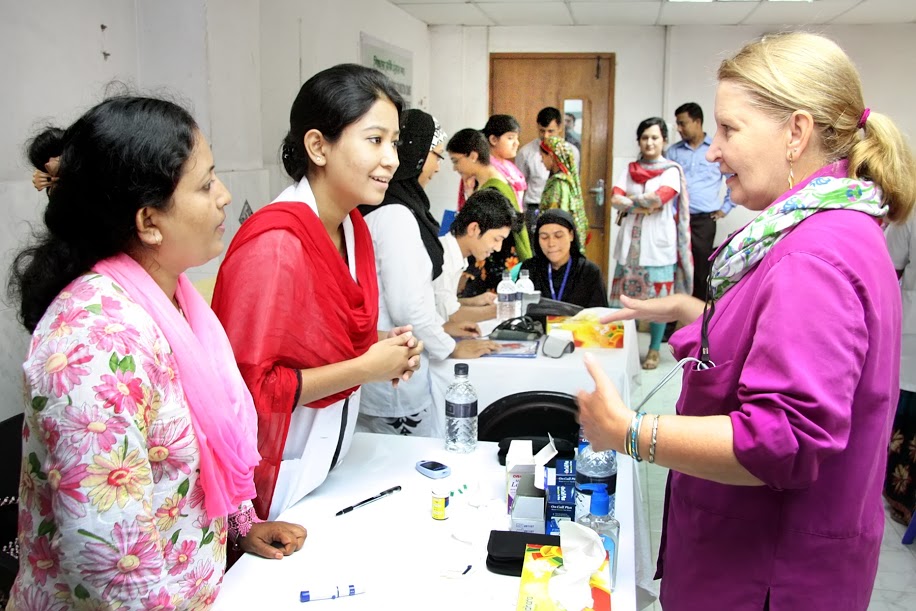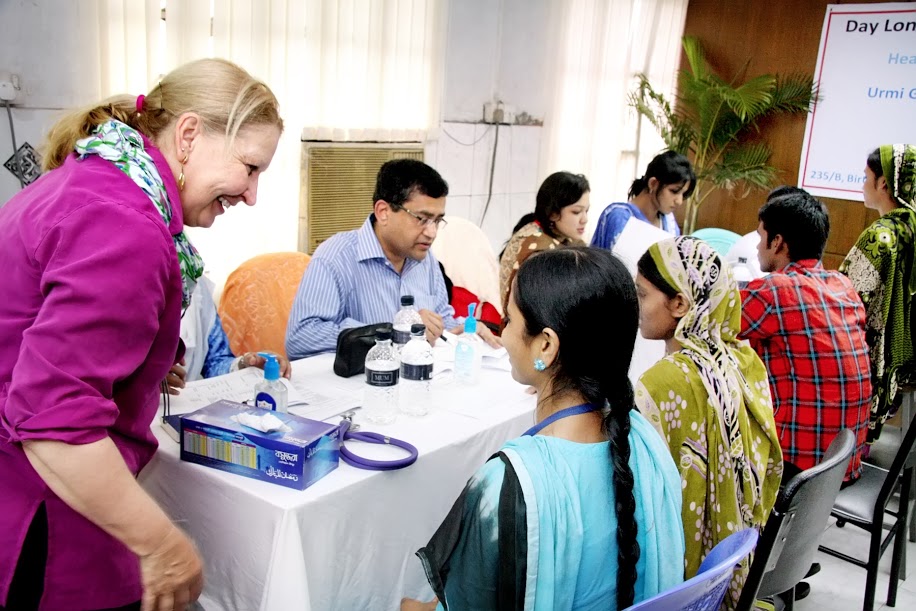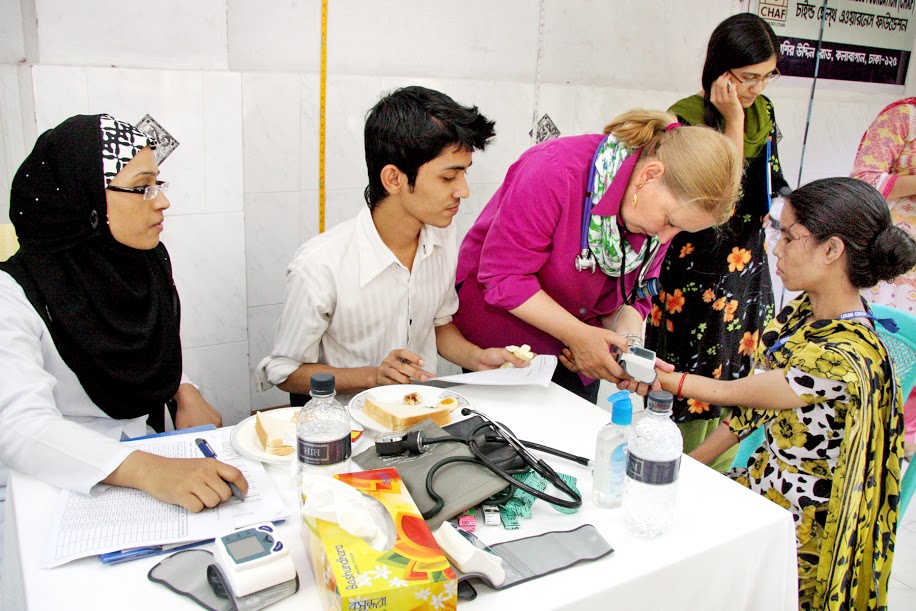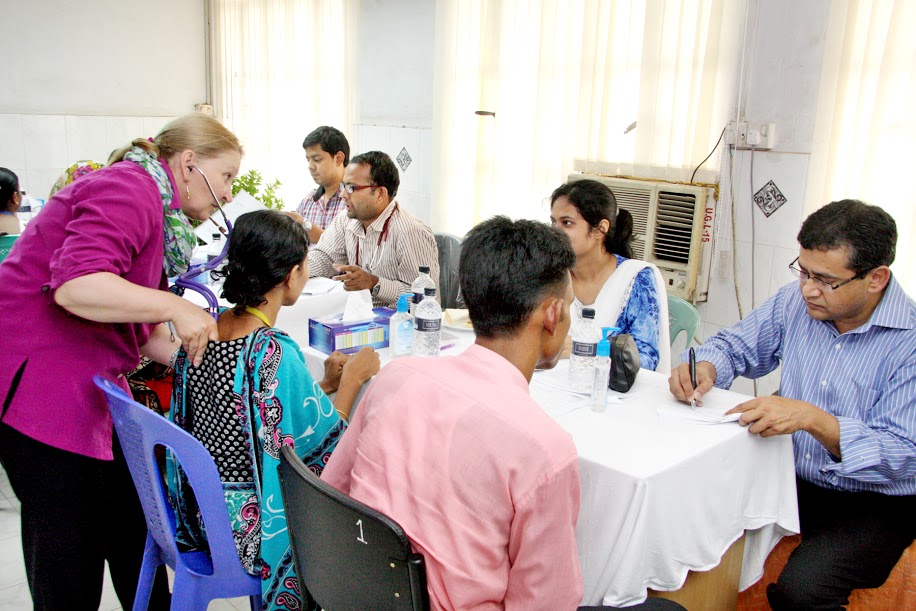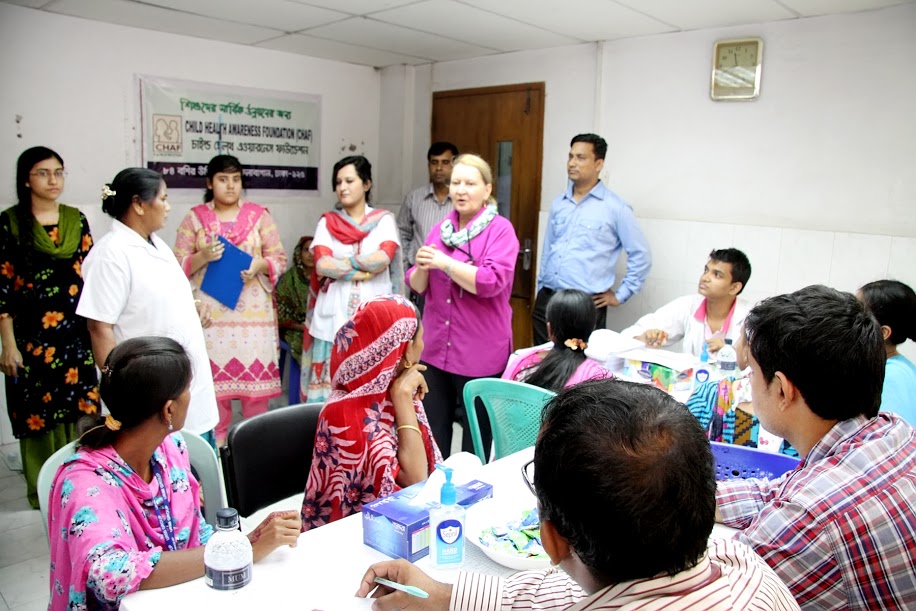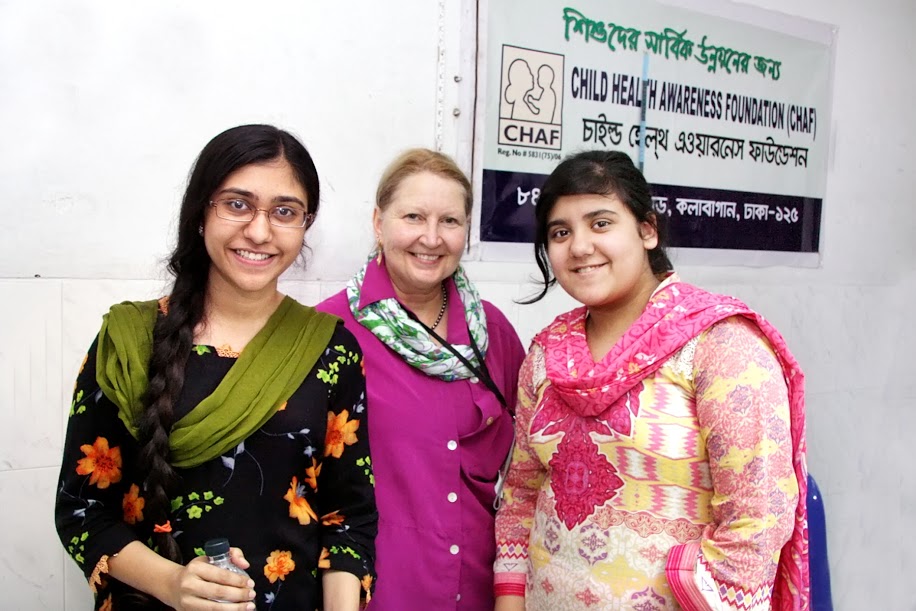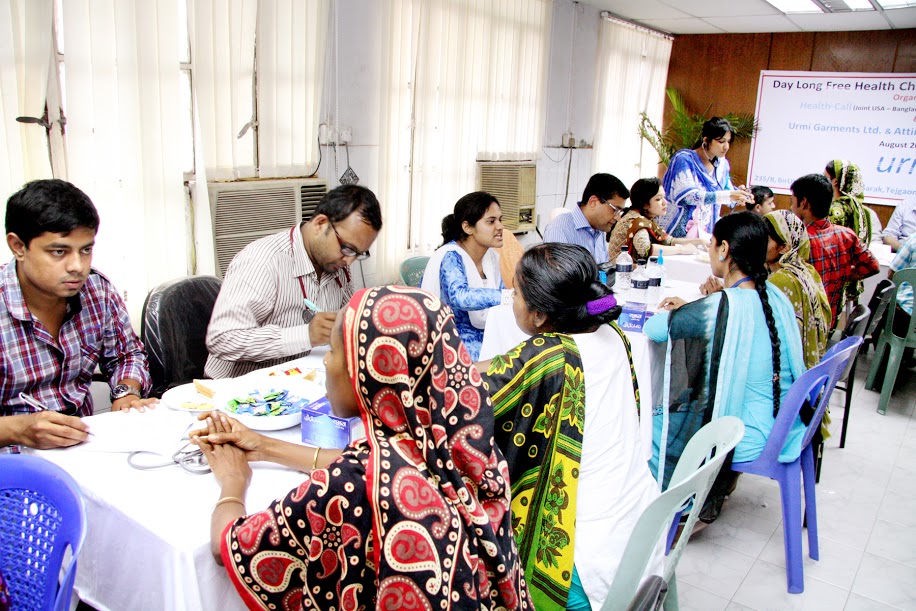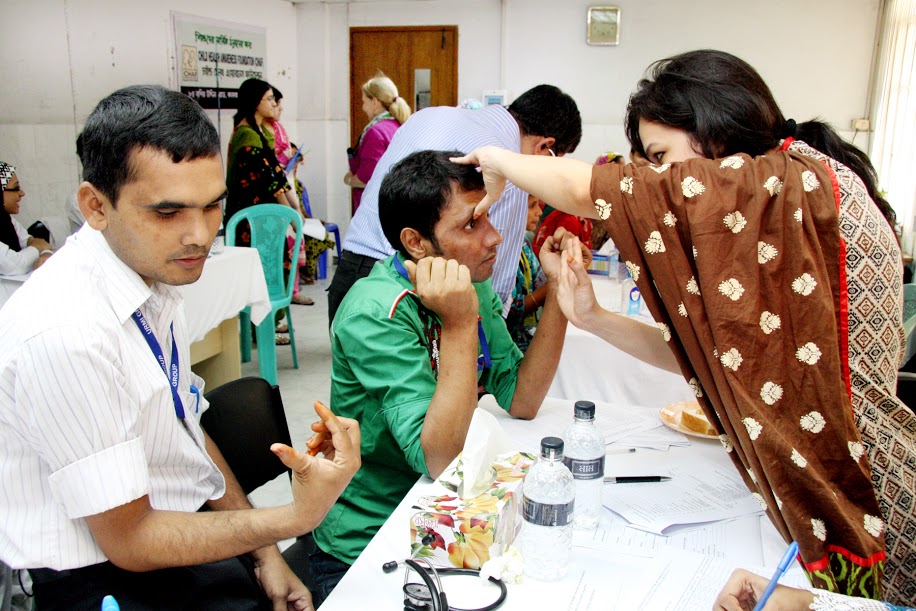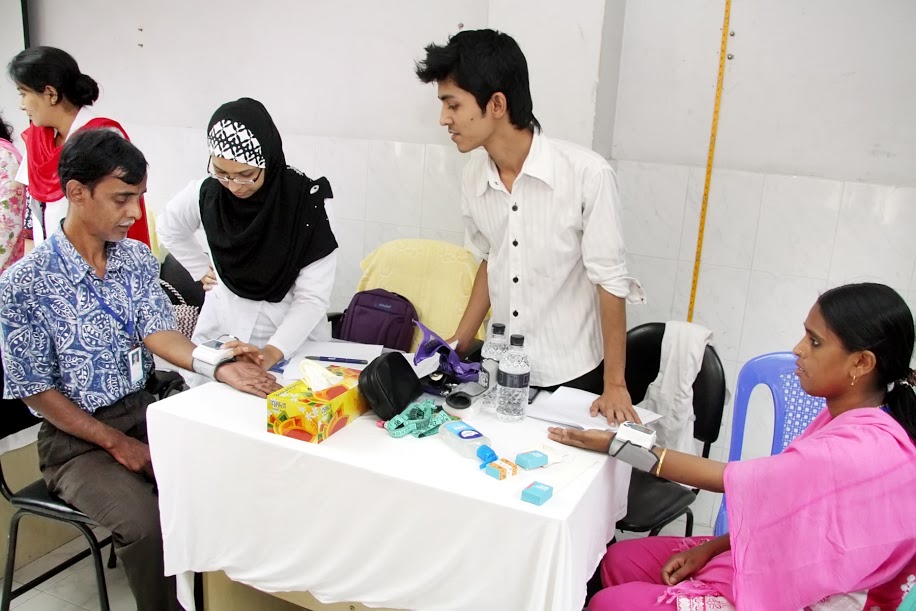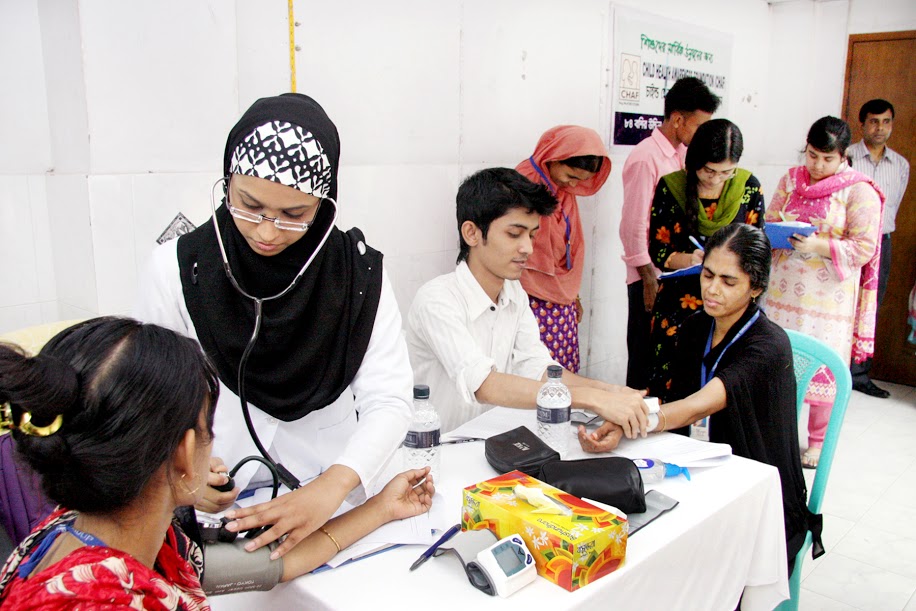Bringing free medical services to underserved garment factory and industrial workers
Between 2012 and 2020, HAEFA provided over 30,000 screenings and treatments for RMG workers.
HAEFA is a pioneering nonprofit health care delivery organization that serves the unmet health needs of the ready-made garment (RMG) factory workers and rickshaw pullers across Bangladesh. Through education and better health, we intend to break the cycle of poverty, uplifting living conditions for industrial workers and slum dwellers. By making small improvements in nutrition and health education, HAEFA is making sustainable improvements in the lives of garment workers.
The project
HAEFA designed and implemented an efficient, seven-minute health screening for non-communicable diseases (NCDs) for the RGM workers. HAEFA uses onsite healthcare workers, with our innovative NIROG electronic medical record (EMR) software, to coordinate screening test results, diagnosis, and treatment regime with our physicians. All patient and employer records are kept strictly confidential and secure.
These screenings check patients for non-communicable diseases such as:
hypertension
anemia
diabetes
tuberculosis
asthma
pregnancy complications
Hundreds of workers are seen each month, with regular follow-up appointments scheduled as necessary to improve their physical and mental health and sustain well-being. HAEFA is working to establish an atmosphere where workers feel comfortable and healthy, helping to build trust and good relationships between the employer and the employees.
Accomplishments
Under the umbrella of HAEFA, Drs. Duda, Abid, Pal and Mr. Mohiuddin have been working as unpaid volunteers and officers to fulfill HAEFA’s major goals. In August 2013, Dr. Abid and Dr. Duda traveled to Dhaka, Bangladesh after the collapse of the garment factory Rana Plaza that killed more than 1,100 workers. Drs. Abid and Duda provided free medicine, health screenings and treatment. With the help of local educators, factory managers and health professionals, HAEFA also provided information about drinking water safety, industrial safety measures, nutrition, health and hygiene education and menstrual health and hygiene for 9,000 workers in three different garment factories over the course of two weeks in 2013.
HAEFA trained medical professionals serving three large garments factories about occupational health and hazards, immunizations and health screenings to prevent chronic and infectious disease. HAEFA also trained existing health workers at the garment factories about the importance of ante-natal care.
Drs. Abid and Duda gave lectures and seminars on cardiovascular disease, breast and cervical cancer, at the National Heart Foundation in Mirpur, the National Institute Cardiovascular Disease at Bangabandhu Sheikh Mujibur Rahman Medical University, and Dhaka Medical College. Dr. Duda led faculty development at Bangladesh and lectured on faculty development at Bangladesh Institute for Research in Diabetes, Endocrine and Metabolic Disorders. HAEFA’s goal is to make the health and education programs self-sustaining and to help support local institutions in Bangladesh.
Recent Updates
HAEFA has successfully screened for diseases and provided treatment and follow ups free-of-cost to thousands of garment workers at factories such as Aman Garment Ltd. (in Savar), Envoy Textiles Ltd. (in Bhaluka, Mymensingh), Columbia Garment Ltd. (in Gazipur), Avant Garment Ltd. (in Sreepur, Mawna), and others. Through our health screening programs we have been able to learn a great deal about the health situation among garment workers and what diseases are affecting them the most. Health screenings at this scale allow for data collection that will enable us to focus on the issues that matter most to workers and lead to a more effective healthcare program specialized for the garment workers we work with.
In 2016, we conducted another health screening and treatment project for workers in an informal labor sector in Bangladesh, rickshaw-pulling. Dhaka alone has 80,000 registered rickshaws, with each employing 2-3 rickshaw-pullers, contributing to a labor force of around 200,000 people. HAEFA conducted a project targeting these workers for screening of common communicable and non-communicable diseases in November 2016. Free health services, including distribution of electronic health cards, was provided to around 1,200 rickshaw-pullers.
The most recent Aman Factory Campaign was carried out in 2019 and treated a total of 2,473 patients in the Aman Garment factory between July 27th and September 17th, 2019. Patients were tested for hypertension, diabetes, TB, pregnancy, and anemia.
